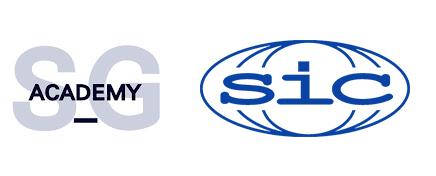Practices for supporting and improving management systems in accordance with the requirements of the ISO standards
This online course allows the top management of organizations to gain the necessary knowledge and skills for supporting and improving management systems in accordance with the requirements of ISO standards.
The course contains an array of practical instruments, after the successful implementation of which, you will be able to achieve a highly effective management system that works like a charm.
Duration
36 hours
Language
English/Ukrainian
Format
100% online
Objectives
The knowledge gained will help you to:
• Successfully implement a systematic approach to business management
• Apply effective business-planning instruments
• Accurately identify and manage processes
• Effectively allocate responsibilities and authorities
• Correctly formulate the policy and strategy of your business
• Develop risk-based thinking
• Develop objectives at the strategic, tactical, and operational level
• Build a stable team, determine and maintain competence of each employee, build a motivation system at your company
• Carry out regular reviews of your management system
• Get the maximum benefit from the implementation of the “improvement” principle
Target audience
• Successful managers and leaders who wish to achieve maximum results
• Managers of all levels – to develop their own leadership and managerial abilities, as well as to develop their own team
• Specialists who plan to take up managerial posts – to gain self-confidence and deep understanding of the specifics of future work
Document on completion
Certificate with the qualification of a top manager, specialization “Support and improvement of management systems in accordance with the requirements of ISO standards”, listed in the SIC international register
Thematic plan
The course program includes one module.
The program is designed for 24 hours, including time for studying theoretical material and taking tests.
After completion of each module, the listener is being tested
Objectives
Content of the program
Number of hours
| 1.1 | Understanding the organization and its context | 3 |
| 1.2 | Understanding the needs and expectations of stakeholders | 1 |
| 1.3 | MS scope and processes | 1 |
| 1.4 | Leadership | 1 |
| 1.5 | Policy and strategy | 1 |
| 1.6 | Functions, responsibilities, and authorities | 1 |
| 1.7 | Actions to treat risks and implement opportunities | 2 |
| 1.8 | MS objectives | 1 |
| 1.9 | Planning changes | 1 |
| 1.10 | Resources | 2 |
| 1.11 | Documented information | 1 |
| 1.12 | Operational planning and control over current activities | 1 |
| 1.13 | Internal audits | 1 |
| 1.14 | Management systems analysis | 2 |
| 1.15 | Nonconformities and corrective actions | 1 |
| 1.16 | Improvement | 2 |
| Testing | 2 |
